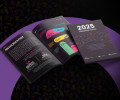FIA commissions Circularity Handbook in partnership with McLaren Racing and Deloitte UK
The Fédération Internationale de l'Automobile (FIA), the governing body for world motor sport and the Federation for mobility organisations globally, together with McLaren Racing and Deloitte UK, today reveal details of the F1 Constructors’ Circularity Handbook, designed to improve sustainable practices in the development and manufacture of Formula 1 cars.

The Handbook has been developed to create a robust and consistent measurement for teams to use when adopting circular practices across the sport. These practices mean minimising the resources we consume, reducing waste in our processes, and maximising the value of the products and materials we use.
The Handbook will serve as a manual for all F1 teams to measure the circularity of their individual chassis manufacture, creating opportunities for future regulatory change to improve the overall sustainability of the sport. By applying a standardised methodology to calculate circularity across the inflow and outflow of materials, teams will also be able to track progress against their unique circularity journey. Over time, the goal is for the Handbook to be adopted across motor sport.
The F1 Constructors’ Circularity Handbook includes:
- A step-by-step methodology to identify and gather data, as well as estimate data to fill any gaps
- Definitions of how to apply circularity criteria to different input materials and waste streams
- Guidance on how to use this information to calculate a single circularity metric
The FIA Formula One World Championship has innovation at its core. Technical advancements from Formula 1 have the potential to influence not only the world of motor sport but also the broader mobility landscape.
McLaren Racing was the first organisation to achieve the FIA 3-star Environmental Accreditation and the first motor sport team to have its net-zero targets validated by the Science Based Targets Initiative. McLaren also pioneered the use of recycled carbon fibre on its F1 cars
and, last year, identified further circularity opportunities within F1 constructor activities in collaboration with its Official Transformation Partner, Deloitte. Reporting these findings to the FIA – which has approved and supported the initiative – highlighted the need for a standardised metric and useable methodology for teams to measure circularity in the manufacture of the F1 car.
Nikolas Tombazis, FIA Single Seat Director said: “The FIA is committed to improving sustainable practices across motorsport and mobility, and technical innovation sits at the heart of these efforts. That is why we commissioned this pioneering research, which will enable Formula 1 teams to adopt and measure practices which minimise the environmental impact of the sport. The Handbook, which will soon be shared with all F1 teams and PU Manufacturers, will allow teams to gather data around their circularity and identify interventions within the current set of regulations and cost cap. In the longer term, our ambition is for the Handbook to be used more widely, and to influence future regulations and innovation in this space.”
Kim Wilson, Director of Sustainability, McLaren Racing, said: “I’m immensely proud of the work we’ve delivered in partnership with Deloitte as a first step to improving circularity in our sport. By embracing circular economy practices, teams can minimise their environmental impact and drive innovation in Formula 1. We identified the manufacture of our F1 car as a key opportunity to improve our environmental impact and progress towards our sustainability targets. This Handbook is a crucial step in achieving that. If we can encourage all teams to measure their circularity, we can collectively influence the technical regulations to improve sustainability without compromising performance.”
David Rakowski, Partner and Circularity Lead, Deloitte UK, said: “Formula 1 is a phenomenal platform for showing what the art of possible is. Implementing circularity practices that do not impede performance will be game-changing for the industry. Our partnership with McLaren has served as a catalyst for transformation and I'm excited to see the impact the handbook will have on the future of the sport.”
About the Fédération Internationale de l'Automobile
The Fédération Internationale de l'Automobile (FIA) is the governing body for world motor sport and the federation for mobility organisations globally. It is a non-profit organisation committed to driving innovation and championing safety, sustainability and equality across motor sport and mobility.
Founded in 1904, with offices in Paris, London and Geneva, the FIA brings together 245 Member Organisations across five continents, representing millions of road users, motor sport professionals and volunteers. It develops and enforces regulations for motor sport, including seven FIA World Championships, to ensure worldwide competitions are safe and fair for all.

 Facebook
Facebook Twitter
Twitter






